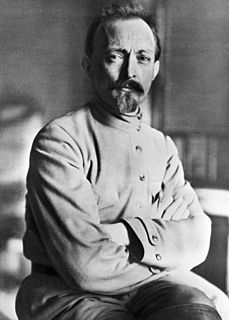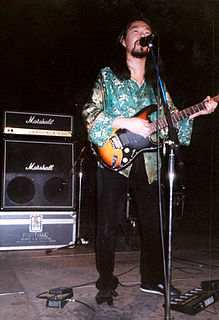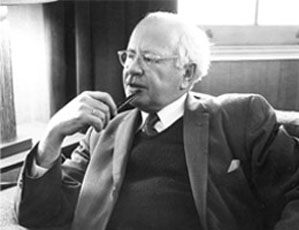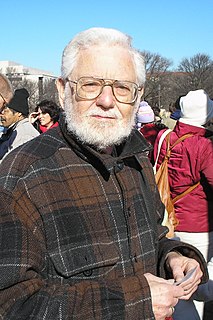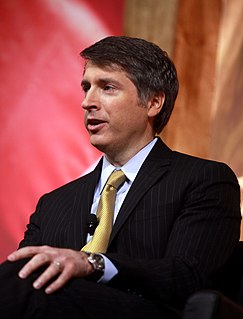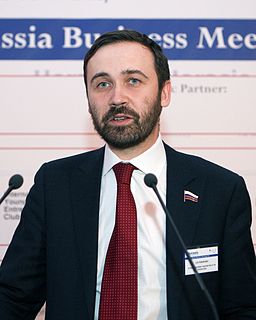Top 1085 Soviet Quotes & Sayings - Page 17
Explore popular Soviet quotes.
Last updated on April 21, 2025.
If they were going to go to London or to the UK to find out how health care is, national health care doesn't work, all they have to do is go to the Soviet Union to find out how communism and socialism didn't work, but it hasn't dissuaded them from trying it here because they think the only thing that hasn't happened is the right people haven't tried it with the proper funding.
Europe is sort of like the Soviet Union in the '30s and '40s. There was an argument, is it reformable or not? There is a feeling, and I think it's correct, that the European Union, the eurozone, and the euro, is not reformable, as a result of the Lisbon treaties and the other treaties that have created the euro. Europe has to be taken apart in order to be put together not on a right-wing, neoliberal basis, but on a more social basis.
What with the political monopoly, the Cheka and the Red Army, all that now existed of the 'Commune-State' of our dreams was a theoretical myth. The war, the internal measures against counterrevolution, and the famine (which had created a bureaucratic rationing apparatus) had killed off Soviet democracy. How could it revive, and when? The Party lived in the certain knowledge that the slightest relaxation of its authority would give day to reaction.
All s, like all human beings, get many things wrong. Ronald Reagan's extraordinary achievement as of the U.S. was to succeed in getting the two biggest challenges of his time right: defeating the Soviet Union and reviving the American economy and spirit. Neither of those achievements was inevitable. Both were fiercely opposed at the time. But he persisted; his visionary focus matched only by a gentleness of character and a brilliance of rhetoric.
With the defeat of the Reich and pending the emergence of the Asiatic, the African and, perhaps, the South American nationalisms, there will remain in the world only two Great Powers capable of confronting each other-the United States and Soviet Russia. The laws of both history and geography will compel these two Powers to a trial of strength, either military or in the fields of economics and ideology. (2nd April 1945)
I was in my early 20s when Estonia joined the E.U. For a kid who'd grown up in the Soviet Union, it seemed like my country had come of age. For a country that had been isolated and cut off from the rest of the world, it seemed like we were becoming part of the global community. It opened a whole new world of possibility.
I think NATO is obsolete. NATO was done at a time you had the Soviet Union, which was obviously larger - much larger than Russia is today. I'm not saying Russia is not a threat. But we have other threats. We have the threat of terrorism. And NATO doesn't discuss terrorism. NATO's not meant for terrorism. NATO doesn't have the right countries in it for terrorism.
The first man-made satellite to orbit the earth was named Sputnik. The first living creature in space was Laika. The first rocket to the Moon carried a red flag. The first photograph of the far side of the Moon was made with a Soviet camera. If a man orbits the earth this year his name will be Ivan.
[Ho Chi Minh] was always conscious that conditions in China and Vietnam were not always the same. He "kowtowed" to the Chinese - as he had to the Soviet Union - in order to receive their assistance, but he quietly worked to limit those forms of influence of which he did not approve (such as the harsh forms of land reform and the Great Leap Forward). Unfortunately, he was not always successful in fending off those forms of external advice that he didn't agree with.
But I would like to think for a moment about a man who in the morning teaches his students that a false attribution of a Watteau drawing or an inaccurate transcription of a fourteenth-century epigraph is a sin against the spirit and in the afternoon or evening transmits to the agents of Soviet intelligence classified, perhaps vital information given to him in sworn trust by his countrymen and intimate colleagues. What are the sources of such scission? How does the spirit mask itself?
Nowadays, there are plans to separate the Baltic states from the common power system of the former Soviet Union and to integrate them into the European system. What does it mean for us in practice? In practice, it means that a number of zones will emerge between several regions of the Russian Federation, where we will have no power transmission lines, since previously we used to have a loop transition through the Baltic countries.
We are hurtling back into a Soviet abyss, into an information vacuum that spells death from our own ignorance. All we have left is the internet, where information is still freely available. For the rest, if you want to go on working as a journalist, it's total servility to Putin. Otherwise, it can be death, the bullet, poison, or trial -whatever our special services, Putin's guard dogs, see fit.
Why is it, that there's no movies, very little very little attention about the greatest Holocaust in the history of the world which was the Holocaust against Christians by the Soviet communism.And that's my point. We have a controlled media today that talks about the Holocaust, but they don't talk about the death and destruction of tens of millions of Christians...Which was a bigger Holocaust.
When we hear (as we sometimes do) that (Russia's) economic output is about half the level of a decade ago or that real incomes have fallen sharply, it is worth recalling that economic statistics under the Soviet Union were hardly more reliable than any other official statements. Moreover, a country that produces what no one wants to buy, and whose workers receive wages that they cannot use to buy goods they want, is hardly in the best of economic health.
We always seem to be surprised by events, especially by catastrophes, but also by wonderful events. Look at 1990, the year that the Soviet Union collapsed and apartheid in South Africa collapsed and the Berlin Wall came down. I don't know anyone who foresaw those events. It seems to me that as a species we are constantly trying to adapt ourselves to the unexpected. In the meantime, we talk as if we are in control, and we're not. This seems to me to be the truth about the twentieth century.
The Kennedy Administration's public pronouncements on the matter suggested that the presence of Soviet nuclear missiles in Castro's Cuba would represent an unacceptable strategic threat to the United States. . . . This urgent transformation of Cuba into an important strategic base - by the presence of these large, long-range, and clearly offensive weapons of sudden mass-destruction - constitutes an explicit threat to the peace and security of all the Americas. . . .
The fascinating thing to a dispassionate observer about the structure of life in the Soviet Union is that in their efforts to produce an unknown that we may let its ideologists call Socialism the Communist dictators have produced a brutal approximation of monopoly Capitalism, a system that has all the disadvantages of our own, with none of the palliatives which come to us from surviving competition and from the essential division of economic and political power which has so far made it possible for the humane traditions of the Western world to continue.
We stand for organized terror - this should be frankly admitted. Terror is an absolute necessity during times of revolution. Our aim is to fight against the enemies of the Soviet Government and of the new order of life. We judge quickly. In most cases only a day passes between the apprehension of the criminal and his sentence. When confronted with evidence criminals in almost every case confess; and what argument can have greater weight than a criminal's own confession.
While public school history courses in the United States stress the horrors of the German Nazi murder of 6 million Jews and Josef Stalin's pogroms against racial minorities and political dissidents in the Soviet Union, the facts that the U.S. Army's solution to the 'Indian Problem' was the prototype for the Nazi 'Final Solution' to the 'Jewish Problem' and that the North American Indian Reservation was the model for the twentieth century gulag and concentration camp, are conveniently overlooked.
People sometimes ask: Is Putin a clever man? Yes, he's clever in his own way, when it comes to political intrigue, and he's got a good head for numbers. But as soon as he took office, the first thing he did was to institute a new anthem based on the old Soviet one; that was a very major step, not a petty issue. He began at once to appeal to people's basest instincts. It is true that people in Russia are used to obedience.
In 2001, we were told that the war in Afghanistan was a feminist mission. The marines were liberating Afghan women from the Taliban. Can you really bomb feminism into a country? And now, after 25 years of brutal war - 10 years against the Soviet occupation, 15 years of US occupation - the Taliban is riding back to Kabul and will soon be back to doing business with the United States.
There's so many ways in which Canada and America are inextricably connected politically, economically, socially. There's no stepping away. But at the same time, we don't have a say. Canada is a different country. Sometimes I think of it as Finland in the Soviet era. We're totally free, but we're totally free to agree, basically. If we disagree too heartily or over too sensitive an issue, then we pay a price for that.
Anti-Semitism is dangerous for the toilers, for it is a false track which diverts them from the proper road and leads them into the jungle. Hence, Communists, as consistent internationalists, cannot but be irreconcilable and bitter enemies of anti-Semitism. In the U.S.S.R., anti-Semitism is strictly prosecuted as a phenomenon hostile to the Soviet system. According to the laws of the U.S.S.R. active anti-Semites are punished with death.
The role of Ronald Reagan had been deliberately diminished; the role of the Europeans, who, with the exception of Helmet Kohl, were often keen to undermine America when it mattered, had been sanitized; and the role of Mr. Gorbachev, who had failed spectacularly in his declared objective of saving communism and the Soviet Union, had been absurdly misunderstood.
The basis of bureaucratic rule is the poverty of society in objects of consumption, with the resulting struggle of each against all. When there is enough goods in a store, the purchasers can come whenever they want to. When there is little goods, the purchasers are compelled to stand in line. When the lines are very long, it is necessary to appoint a policeman to keep order. Such is the starting point of the power of the Soviet bureaucracy. It "knows" who is to get something and who has to wait.
The Soviet Union began by banishing God. The United States began as a community of people who wanted to worship God as they chose. . . Man does not live by bread alone. Those in the United States whose desire to create a strictly secular society is as strong as Lenin's was should study this Cold War lesson closely. Communism was defeated by an alliance spearheaded by 'one nation under God.'
Time and again-from the collapse of the Soviet Union to the events of 9/11 to the onset of the Arab Spring-events have caught the experts, whether in government or on the outside, completely by surprise. Business owners with comparable performance records go bust. Brokers lose their clients. Physicians get sued for malpractice. Yet think-tankers and policy wonks continue to opine, never pausing to reflect on-or apologize for-their spotty records.
I look at the great poets of the Soviet Union, like Anna Akhmatova, who endured far worse then anything we've seen or hopefully that we will ever see. If they could keep writing and keep a voice alive, keep people hopeful through their poetry, then I would be ashamed to stop and to give in. It would be really self-indulgent, unacceptable, and inexcusable to walk away from it.
On the other hand, Surrealism has been a part of Romanian literature since forever. Even before Tzara, who was originally Romanian, we had Urmuz, who was a surrealist before the term even existed. During Breton's era too, there was a very active Romanian Surrealist group (Ghérasim Luca, Gellu Naum, etc.) closely related to the French. They had to quit their activities as soon as the Soviet communists took over.
I couldn't get my first film on the air. The first film I did was called 'The Race For Space,' about the U.S.-Soviet space race. The networks had a policy that I found out about the hard way. I even had a sponsor for my program, but the networks wouldn't put it on because it was independently produced.
Communism wasn't a word that I thought of when I went to Cuba. The original Fidelistas were not Communists. They were graduate students at the university and law students. After the Fidelistas took over, they went to Washington and tried to get support from the U.S. government, which turned them down. They were in a desperate political and economic situation, so they took the offer from the Soviet Union. Communism was a matter of necessity.
Judged by every standard which history has applied to Governments, the Soviet Government of Russia is one of the worst tyrannies that has ever existed in the world. It accords no political rights. It rules by terror. It punishes political opinions. It suppresses free speech. It tolerates no newspapers but its own. It persecutes Christianity with a zeal and a cunning never equalled since the times of the Roman Emperors. It is engaged at this moment in trampling down the peoples of Georgia and executing their leaders by hundreds.
The Soviet Union tried to sell a set of ideas, very left wing, and focus on so-called peace. Vladimir Putin doesn't care who helps him to push his agenda. He is equally comfortable with the politics of Nigel Farage and Corbyn in Britain, Le Pen and Jean-Luc Mélenchon in France. Whether far left or nationalist, he doesn't care, as long as they support chaos and destruction and the undermining of existing institutions.
One of the things that's amazing about reading the private writing of these folks is that they enthusiastically describe things which we have now seen, and which are widely regarded as unappealing. They'll write, "It's going to be beautiful, we're going to have a town of 1,000 stone buildings that are all identical." And we as modern readers think, we've seen that; that's bad Soviet architecture or a public housing project. Nobody fantasizes about living there.
For them (the peoples of the Soviet Union) We cherish the warmest paternal affection. We are well aware that not a few of them groan beneath the yoke imposed on them by men who in very large part are strangers to the real interests of the country. We recognize that many others were deceived by fallacious hopes. We blame only the system with its authors and abettors who considered Russia the best field for experimenting with a plan elaborated years ago, and who from there continue to spread it from one of the world to the other.
I grew up during the Communist time. When I was a student and I especially wanted to play rock, that was a problem for all rock musicians in the Soviet Union. My friends liked it, but all the Communist officials, bureaucrats, teachers, didn't like this. There was very powerful propaganda against capitalism and the Western ideology. Everything that was connected to the West - rock music, jeans, long hair, loud music - everything was not allowed. But luckily that's now in the past. I hope.
Chamberlain's stubborn, fanatical insistence on giving Hitler what he wanted, his trips to Berchtesgaden and Godesberg and finally the fateful journey to Munich rescued Hitler from his limb and strengthened his position in Europe, in Germany, in the Army, beyond anything that could have been imagined a few weeks before. It also added immeasurably to the power of the Third Reich vis-a-vis the Western democracies and the Soviet Union.
When Cuba lost their fossil fuel pipeline when the Soviet Union collapsed in 1990. Overnight they had no choice, they had to transition to clean energy, they didn't have any fuel to burn, and they also had to transition to a healthy food system, an organic system - their economy is crashing, this was not a planned transition. This was a crisis, but a crisis nonetheless, in which pollution went away. And it's very instructive to see what happened to their health.
So far, the Far Eastern focal point of danger is the most active.It is possible, however, that the center of the menace may shift to Europe. Evidence of this is provided, for instance, by [Adolf] Hitler's recent interview given to a French paper. In this interview, Hitler seems to attempt to say peaceful things. But this "peacefulness" of his is so thickly interspersed with threats against France and the Soviet Union that nothing remains of the "peacefulness".
I remain convinced that for Stalin to have complete centralized power in his hands, he found it necessary to physically destroy the second-largest Soviet republic, meaning the annihilation of the Ukrainian peasantry, Ukrainian intelligentsia, Ukrainian language, and history as understood by the people; to do away with Ukraine and things Ukrainian as such. The calculation was very simple, very primitive: no people, therefore, no separate country, and thus no problem. Such a policy is Genocide in the classic sense of the word.
I'm a historian by training and by conviction. And so the thing that has throughout informed my thinking about international relations is history. I think, for example, the reason that I was perhaps able to see sooner than some others that the Soviet Empire in Eastern Europe was decaying--if not disintegrating--was that I came to it through history and through Germany, rather than through Sovietology and through Moscow. And therefore the starting point was that no empire in history has lasted forever, and this one won't either.
Socialism's failure in the former Soviet Union and in the other socialist countries stands as a clean and unquestionable warning as to which path any rational and sane people should never follow again. Government planning brought poverty and ruin...Unfortunately, America is not absorbing the lessons that should be learned from the socialist experience and, instead, is following the same path of destruction.
The Bush administration continues to coddle China, despite its continuing crackdown on democratic reform, its brutal subjugation of Tibet, its irresponsible export of nuclear and missile technology... Such forbearance on our part might have made sense during the Cold War when China was the counterweight to Soviet power. It makes no sense to play the China card now when our opponents have thrown in their hand.
[Russians would like to] undermine the West and its institutions, create doubts about NATO, create doubts about the European Union, support nationalists on the right just as the Soviet communists supported communists on the left. Weaken the West in general and create an atmosphere in which we`re uncertain about ourselves.
My parents, who were Communists, always pretended to be American patriots. You can always convince yourself you are: 'I love America, I just want it to be perfect, which it will be when it becomes a Soviet Communist state'. When the left called for 'liberation' what it really wanted was to erase the human slate and begin again. Like everybody else, I see things that need to be improved. I just am mindful of the fact that they can be made a lot worse.
Two world wars, three monstrous dictatorships-in Soviet Russia, Nazi Germany, Red China-plus every lesser variant of devastating socialist experimentation in a global spread of brutality and despair, have not prompted modern intellectuals to question or revise their dogma. They still think that it is daring, idealistic and unconventional to denounce the rich. They still believe that money is the root of all evil-except government money, which is the solution to all problems.
One of the signs of the imminent Apocalypse is the "bitterness of all waters," and anyone traveling through eastern Europe, the former Soviet Union and its satellites-everywhere that the command economy operated, with its callous disregard for anything but narrow-focused abstract principle-could be forgiven for thinking that the Apocalypse was no longer imminent but in full cry. There's hardly a river, stream, or brook that isn't contaminated with the runoff from human misuse, whether industrial effluents, agricultural pesticides and herbicides, or worse.
In the late 1980s, Soviets were allowed to keep the wealth they created by raising vegetables on their garden plots. Although these plots composed only about 2% of the agricultural lands in the Soviet Union, they produced 25% of the food! When Soviets kept the wealth they created, they produced almost 16 times more than when it was taken from them at gunpoint, if necessary!
The freedoms we have in Russia are just leftovers. Freedom of travel, which was completely nonexistent in the Soviet Union; artistic freedom - so far, that's doing fine too, virtually everything can be published. Although with some books that are too edgy politically, or are especially undesirable, the authors are already running into difficulties. Theaters that produce provocative plays, or clubs that host undesirable events often find themselves on the receiving end of fire safety inspections and fines.
The Soviets held to the tradition of colonialism. They raped the country and killed many people. But they also built dams, electrical power plants, streets, and technical schools. They were communists and had the same vision for Afghanistan that Stalin and Lenin had for the Soviet Union: Progress is communism plus electrification. And today? Today Kabul gets its electrical power from Uzbekistan, Herat from Iran and Jalalabad from Pakistan.
Literature cannot develop between the categories "permitted"—"not permitted"—"this you can and that you can't." Literature that is not the air of its contemporary society, that dares not warn in time against threatening moral and social dangers, such literature does not deserve the name of literature; it is only a facade. Such literature loses the confidence of its own people, and its published works are used as waste paper instead of being read. -Letter to the Fourth National Congress of Soviet Writers
The Soviet Union and something called communism per se had not been the object of Washington's global attacks. There had never been an International Communist Conspiracy. The enemy was, and remains, any government or movement, or even individual, that stands in the way of the expansion of the American Empire; by whatever name the US gives to the enemy - communist, rogue state, drug trafficker, terrorist.
If your Soviet neighbor is trying to set fire to your house, you can't be worrying about the Arab down the block. If suddenly it's the Arab in your backyard , you can't be worrying about the People's Republic of China and if one day the ChiComs show up at your front door with an eviction notice in one hand and a Molotov cocktail in the other, then the last thing you're going do is look over his shoulder for a walking corpse.
Take, for example, Lithuania. Do you know, what was its population in the Soviet times? It was 3.4 mln people. It was a small country, a small republic. And what is it now? I have looked though the recent statistics, today the population of this country is 1.4 mln people. Where are the people? More than half of the citizens have left the country.
The society which we have built can in no way be termed "state socialism."The social organization which we have created can be termed a Soviet, socialist organization which has not yet been quite completed, but is in its root a socialist organization of society. The foundation of this society is public ownership.
Peter Beinart excoriates the doughface liberals who during the Cold War put anti-imperialism before anti-totalitarianism and demanded total moral purity on the part of the United States, thus opposing any action in the real world to resist Soviet expansionism. If the Democrats were, as he advocates, to return to the Trumanesque anti-totalitarian liberalism that held sway in the party from roughly 1947 to 1972, the party and the country would be better off.
Russia can fall apart. It's not because of the oil prices ... It's because what sticks a country together is a common interest of people. It has to be economically and socially profitable - beneficial - for people to be together. They should understand how they benefit from a large country. And if they start to feel like a large country is a source of problem, then the country collapses as the Soviet Union collapsed.
Regret what? That secret operation was an excellent idea. It had the effect of drawing the Russians into the Afghan trap and you want me to regret it? The day that the Soviets officially crossed the border, I wrote to President Carter. We now have the opportunity of giving to the USSR its Vietnam war. Indeed, for almost 10 years, Moscow had to carry on a war unsupportable by the government, a conflict that brought about the demoralization and finally the breakup of the Soviet empire.
















